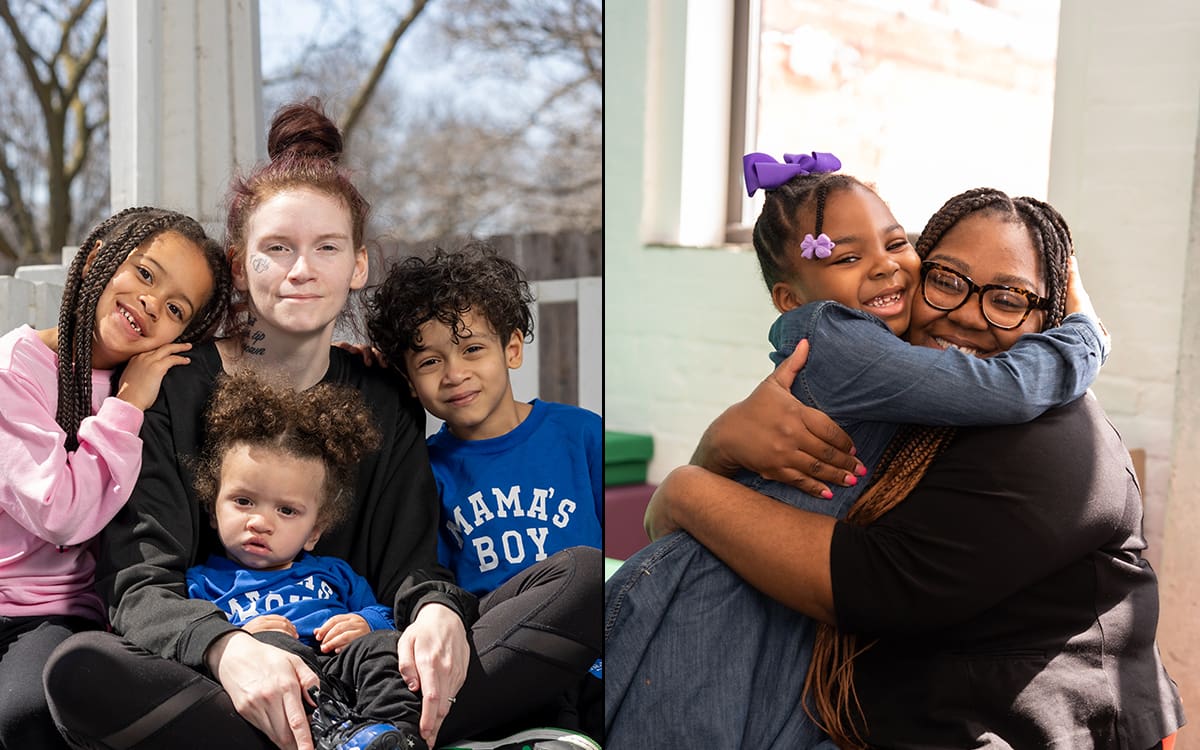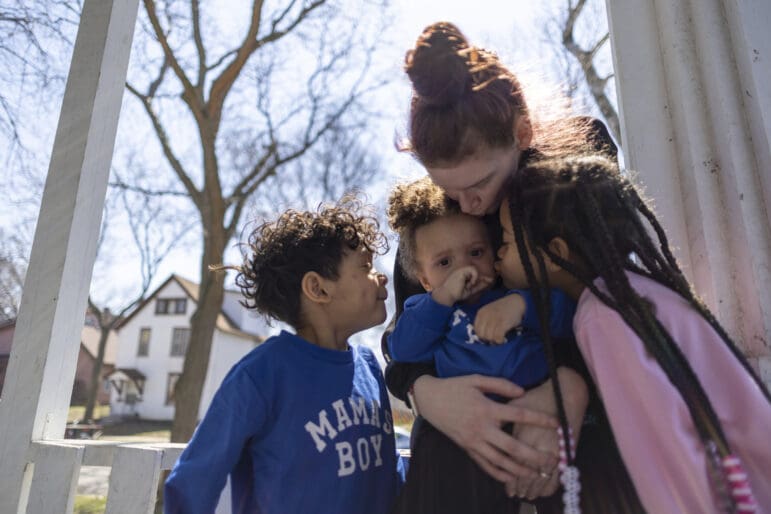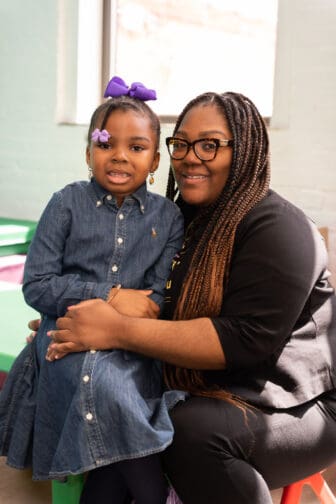Investing in the Next Generation
A new initiative around 529 plans opens the door to college savings for Jeremiah Program kids.
Anyone familiar with Jeremiah Program understands this core belief: No mother should have to make the untenable choice between investing in herself or supporting her children.
Because JP aims to disrupt the cycle of poverty two generations at a time, investing in educational attainment extends to the program’s littlest participants, too — through quality early childhood education, summer enrichment programs, and, since 2022, investment in families’ 529 plans.
“A 529 savings plan is a tax-advantaged investment account designed to encourage families to save for future education expenses, such as college tuition, fees, room and board, and other qualified higher education expenses,” says Katherine Langston, JP’s Senior Program Coordinator for Parent Programming. “It offers a tax-efficient way to save for education expenses while potentially benefiting from investment growth.”
JP helps moms establish 529 accounts and makes a $100 deposit per child account three times a year if moms complete at least 50 percent of their attempted course credits. Moms can make contributions as well. Since the initiative began, JP has invested over $43,000 in families’ 529 accounts.
“Pursuing higher education is a big decision,” Katherine says. “We are proud to walk alongside families on this journey by investing funds to achieve their children’s educational goals.”
Sparking Conversations
Opening a 529 account offers families more than a savings plan. Moms say it creates opportunities for them to discuss financial planning and goal setting with their kids and promotes intergenerational learning.
“Me being a single mother of three, I can’t afford college for my kids,” says recent JP Fargo-Moorhead alum Jordan Ahrens. “I’ve done financial aid, but you never know: In 10 years, what if that’s not available to them? What if financial aid is gone? You don’t want to be out here paying back $60,000.”
Jordan says having the account gives her the opportunity to share her own cautionary student loan tale and educate her kids about better options for funding a college degree.
“I’m hoping they take the time to really figure out what they want to do and where they want to go just so they don’t end up like me,” she said. “I’ve paid for several schools and I’m still paying off school. I’m hoping they do it the right way: not taking out the loans.”
“My mom used to say college was a waste of time,” says Brooklyn mom Infiniti Johnson, “but I’m teaching my children that you have to go to college. That’s mandatory. [The 529 account] opens up the conversation that college is important.”
“When a child understands that these funds have been designated in their name, it can make pursuing higher education feel more achievable and tangible.”
Katherine Langston,
JP Senior Program Coordinator for Parent Programming
Leveraging Opportunities
While Infiniti expects her kids to pursue postsecondary education, she notes that, without a 529 account, her options to save for her children’s futures are limited.
“A lot of us are on public assistance and we can’t have savings accounts,” she said. “This 529 program is different. You are allowed to have it.”
According to Katherine, traditional accounts may not be the best option for college savings, regardless of eligibility.
“Savings not held in tax-advantaged 529 accounts may affect financial aid eligibility, potentially reducing access to need-based aid,” she says. “Overall, while alternative methods of saving for college exist, not utilizing 529 plans may result in missed tax benefits, reduced financial aid eligibility, and increased uncertainty in preparing for higher education expenses.”
The benefits are more than monetary. 529 accounts empower families to take charge of their financial futures, invest in their children’s long-term success, and overcome limiting beliefs about their ability to access post-secondary education.
529 Account Facts & Figures
In 2022, there were almost 16 million 529 savings accounts established in the United States. (Source: College Savings Plan Network)
Any U.S. resident over 18 with a legal address and a tax ID can open a 529 account. (Source: Fidelity)
Anyone of any age with a tax ID can be an account beneficiary. (Source: Fidelity)
If money in a 529 account isn’t used for education, a portion can be rolled over to a Roth IRA tax- and penalty-free. (Source: Nerd Wallet)
529 funds can be used to pay back up to $10,000 of student loan debt. (Source: CNBC)
“Studies have shown that even small-dollar college savings can significantly increase the likelihood of children enrolling into college and eventually graduating,” Katherine explains. “When a child understands that these funds have been designated in their name, it can make pursuing higher education feel more achievable and tangible.”
Breaking the Cycle
As JP moms are painfully aware, children from families without generational wealth face significant barriers to accessing higher education. In addition to financial constraints, family responsibilities and systemic inequalities like racism and income disparities can limit the time and energy families can spend focusing on academics — another variable that perpetuates cycles of poverty.
By making college an early priority and reducing the financial burden, 529 savings plans can be a valuable tool for overcoming these barriers and advancing the goals of the two-generational model.
“It makes me feel good to know my babies are going to go to school, and I won’t have to worry too much about it,” says Infiniti. “[Saving for college] never happened for me, so I had it happen for them. We’re breaking a generational crisis.”

Find this story and more in our magazine, Imagine!
At Jeremiah Program, we know that supporting single mothers means supporting their children. That’s why we’re proud to join the whole family’s journey — two generations at a time — and that’s what the second issue of Imagine is all about.
Hear directly from the college-bound children of a JP alum what their mother taught them about education. Read a Q&A with the entrepreneur daughter of one of JP’s first graduates, who earned her degree in 2000. Learn how JP is investing in the next generation through 529 accounts, tutoring, summer enrichment, and more.
Every family deserves the opportunity to plant seeds for the next generation to grow strong, develop, and thrive. You can support the sowing of those seeds for JP families.



